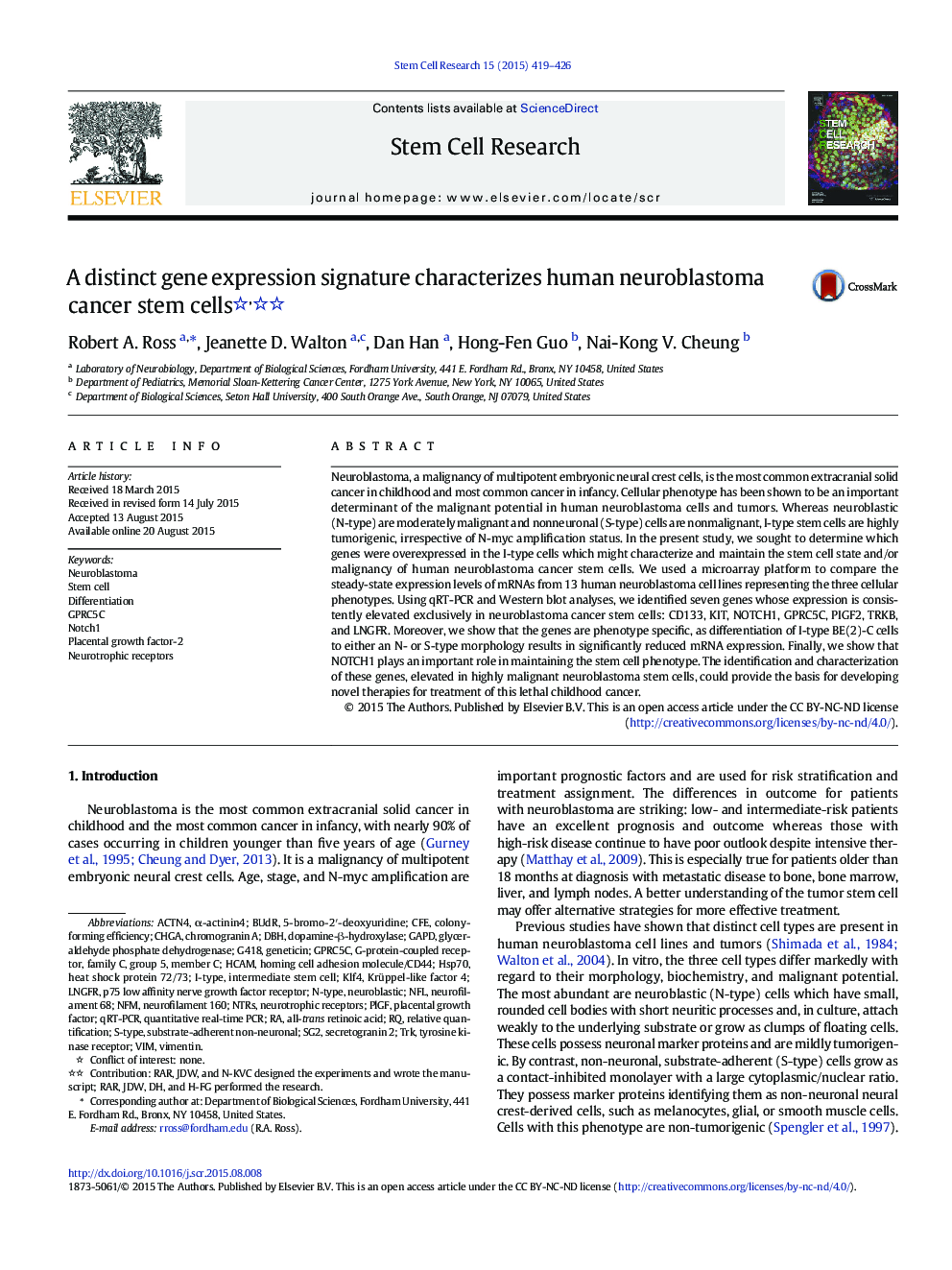| Article ID | Journal | Published Year | Pages | File Type |
|---|---|---|---|---|
| 2094149 | Stem Cell Research | 2015 | 8 Pages |
•Human neuroblastoma stem cells have a unique gene expression profile.•NOTCH1 overexpression blocks neural/glial differentiation, maintaining the highly malignant character of these stem cells.•PlGF2 overexpression may induce angiogenesis, enabling these solid tumors to survive and proliferate.•Elevated TRKB and LNGFR mRNA levels may prevent apoptosis and promote chemoresistance.
Neuroblastoma, a malignancy of multipotent embryonic neural crest cells, is the most common extracranial solid cancer in childhood and most common cancer in infancy. Cellular phenotype has been shown to be an important determinant of the malignant potential in human neuroblastoma cells and tumors. Whereas neuroblastic (N-type) are moderately malignant and nonneuronal (S-type) cells are nonmalignant, I-type stem cells are highly tumorigenic, irrespective of N-myc amplification status. In the present study, we sought to determine which genes were overexpressed in the I-type cells which might characterize and maintain the stem cell state and/or malignancy of human neuroblastoma cancer stem cells. We used a microarray platform to compare the steady-state expression levels of mRNAs from 13 human neuroblastoma cell lines representing the three cellular phenotypes. Using qRT-PCR and Western blot analyses, we identified seven genes whose expression is consistently elevated exclusively in neuroblastoma cancer stem cells: CD133, KIT, NOTCH1, GPRC5C, PIGF2, TRKB, and LNGFR. Moreover, we show that the genes are phenotype specific, as differentiation of I-type BE(2)-C cells to either an N- or S-type morphology results in significantly reduced mRNA expression. Finally, we show that NOTCH1 plays an important role in maintaining the stem cell phenotype. The identification and characterization of these genes, elevated in highly malignant neuroblastoma stem cells, could provide the basis for developing novel therapies for treatment of this lethal childhood cancer.
